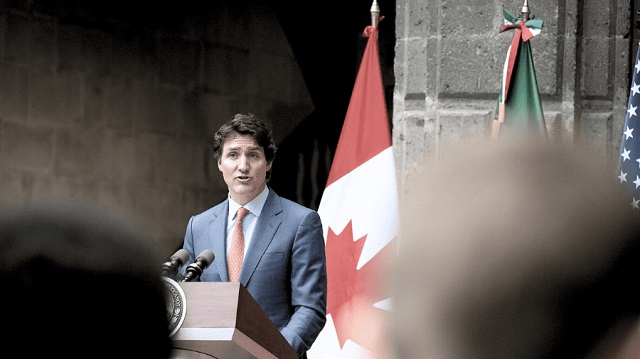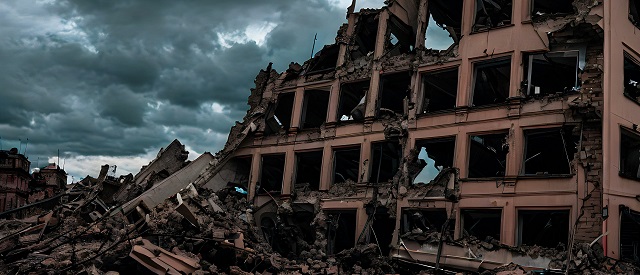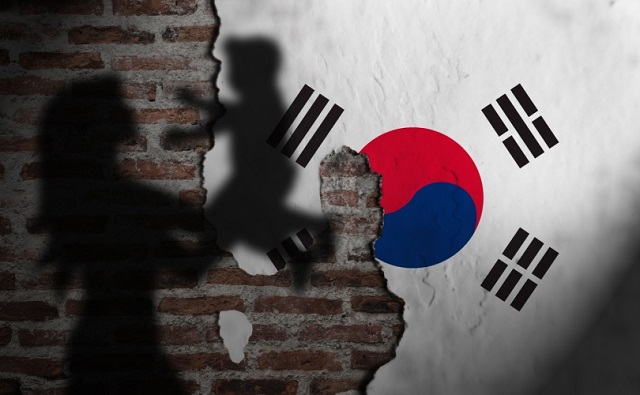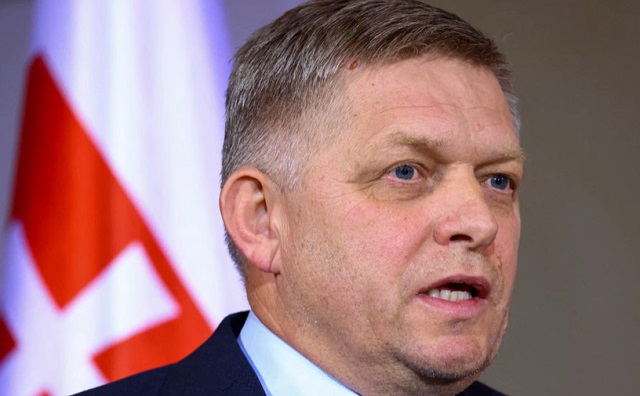conflict
Trudeau should know that Hamas is to blame

From the MacDonald Laurier Institute
By Johanna Blom
Israelis know the ‘world is watching’ and they too want Palestinian children to live in peace
On Thursday, November 9, an aging Right Honourable Brian Mulroney stood before the World Jewish Congress in New York to accept the organization’s highest honour, the Theodor Herzl Award, in recognition of his efforts to combat antisemitism and his unwavering support for Israel and the Jewish people. A shadow of his former prime ministerial self, he spoke with humility and wisdom but also the conviction of experience when he said, “The prime minister sets both the agenda and the tone in Ottawa.”
Five days later his current successor stood behind a microphone in Vancouver and, scarcely capable of concealing his contempt, lectured the Israeli government on its conduct in the current war in Gaza. Which of course is the same war in Gaza that has simmered on and off for the last sixteen (or really thirty-five) years whenever Hamas decided they were strong enough to violate the latest ceasefire and continue their relentless effort to push the Jews into the sea.
“Even wars have rules,” the Right Honourable Justin Trudeau patronized, emphasizing every word. “I urge the government of Israel to exercise maximum restraint. Because the world is watching… The world is witnessing this. Killing of women, children, of babies. This has to stop.”
Two years ago, I came to Israel to fulfill a childhood dream. I had always wanted to study here – in the land where the desert blooms and King David and Jesus walked and every event ends with singing Hevenu shalom aleichem (“We bring peace to you”). Yet the time never seemed quite right, I didn’t have a good study-plan, and I didn’t have Hebrew. So instead of studying in Israel I obtained a law degree and wound up advocating for the rights of religious minorities around the world, doing a stint in counter-terrorism and human rights after 9/11, visiting Israel several times and never fully losing sight of my dream to study there. Then Covid happened. I realized it was now or never and so I enrolled in an M.A. in counter-terrorism, focusing on human rights, in Israel.
My first visit to Israel had been at the height of the Second Intifadah in 2002 and I didn’t realize how significantly that experience coloured my perspective until I was acquainted with the statistics in my classes. Over the years I was baffled by complaints about how difficult life was in Israel. After all, my introduction to Israel had been two-and-a-half weeks of dodging bus-bombs and the relative calm since then seemed downright peaceful. Now I know that the number of “successful” suicide bombings the month I had been here was more than double the next highest month at any point before or after.
As Prime Minister Mulroney said on accepting his award, “The most sacred duty of any government is to provide for the security of its citizens.” Israel did that in the spring of 2002 and what I had failed to realize was that the attacks slowed by more than half the week after I left. That did not mean the terrorists had stopped trying. It just meant Israel had become more successful at foiling their attempts.
On October 7, I was outside of Israel visiting an ill family member. Observing the signs, I had been expecting something to happen and when it did I knew I needed to return as planned. On arrival, I found a country and a people shell-shocked but filled with resolve. I also saw a unity of purpose that would have seemed impossible when I left the country amid protests over the government’s judicial reform policy only four weeks earlier.
Over the years I’ve learned that not every event in Israel ends with Hevenu shalom aleichem, but the sentiment is still there. I’ve learned it’s not all desert flowers and that most people here don’t really care so much about King David or Jesus. Is Israel perfect? No. Is there discrimination, even racism, and other problems? Yes. Is it an apartheid state? No. Does it, as Trudeau’s comments seem to imply, intentionally target Palestinian ‘women, children, and babies’? Most certainly not.
That is why Prime Minister Trudeau’s words are so dangerous. Israel wants nothing more than to live in peace. Israelis, whether Jewish or Arab, Muslim or Christian, also want Palestinian children to live in peace and thrive.
Canada needs to understand that Israel is incredibly conscious of abiding by international law. It knows that ‘the world is watching’. In fact, it counts in days, if not hours, the window it has in which to operate before the world’s confused moral outrage once again forces it to leave the job undone, frozen until the next time Israelis lose their lives. It follows international law because it cares about innocent Palestinians, apparently more than their own leaders do.
As human rights lawyers Sarah Teich and David Matas wrote recently, “There are two groups that Hamas has victimized: Jews and Palestinians.” If we as Canadians care about Palestinians, then we must allow Israel to do what it needs to do to finally root out Hamas. Yes, innocent Palestinian lives will be lost, but more will be lost if Israel is forced to stop before completing the job. Because it is not Israel who is responsible but Hamas. It is Hamas who puts Palestinians in harm’s way and prevents them from leaving.
Hamas is to blame. We must state this clearly and unflinchingly. As long as the Prime Minister makes misleading comments that make it seem like Israel is intentionally killing innocent civilians, rather than doing everything in its power to minimize civilian casualties, Canadians will continue to misunderstand the fundamental nature of this conflict. For as long as the West misunderstands this conflict, it will encourage Hamas to put Palestinian lives at risk and embolden antisemitic attacks at home in Canada.
Johanna Blom is a Toronto-based lawyer and human rights advocate. She has recently obtained an M.A. (summa cum laude) in Counter-Terrorism and Homeland Security from Reichman University in Israel where she is pursuing research on the intersection of counter-terrorism and human rights.
conflict
White House Reportedly Worried About Russia’s Sudden Momentum Months After Biden Declared Putin ‘Already Lost’ War

 From the Daily Caller News Foundation
From the Daily Caller News Foundation
By NICK POPE
Manpower is a factor of growing significance for the Ukrainians, according to numerous reports. The war has claimed the lives of tens of thousands of Ukrainian soldiers, according to The Associated Press
White House officials are reportedly concerned that Russia may soon change the course of the conflict in Ukraine, less than a year after President Joe Biden said Russian President Vladimir Putin “already lost” the war, The New York Times reported Wednedsay.
Some aides and officials inside the Biden administration are concerned that Russia may be turning the war’s tide despite the U.S. government’s April approval of $61 billion of fresh aid for Ukraine, according to the NYT. The current level of concern stands in contrast to Biden’s comments in July 2023 that Putin had “already lost the war” and that there is “no possibility” the Russians prevail in the conflict.
“Putin’s already lost the war,” Biden said during a July 2023 press conference alongside then-Finnish President Sauli Niinisto. “Putin has a real problem. How does he move from here? What does he do? And so, the idea that there’s going to be, what vehicle is used, he could end the war tomorrow, he could just say ‘I’m out.’ But what agreement is ultimately reached depends upon Putin and what he decides to do, but there is no possibility of him winning the war in Ukraine.”
Sec Blinken announces another $2 Billion in aid to Ukraine pic.twitter.com/PLZ5Ylrjko
— Daily Caller (@DailyCaller) May 15, 2024
Eighteen months ago, Biden administration personnel debated among themselves whether or not Ukraine could fully expel the Russians from their territory, according to the Times. Now, a number of officials and aides are reportedly viewing the next few months as critical toward determining the conclusion of the conflict, whether that takes the shape of a negotiated cease-fire deal or some other resolution.
Russian forces captured a considerable amount of territory near Kharkiv in Ukraine’s northeast over the weekend, and the Ukrainian command has been forced to divert some of their own forces to the region, leaving other parts of the front less well-manned. Recent gains in the Kharkiv region represented the most mileage that the Russians have captured in a short period of time over the course of the whole war, excluding its earliest stages.
Notably, manpower is a factor of growing significance for the Ukrainians, according to numerous reports. The war has claimed the lives of tens of thousands of Ukrainian soldiers, according to The Associated Press, and the Ukrainian government has lowered the minimum age of conscription from 27 to 25 and started to send certain types of convicts to the front lines.
Ukrainian forces have also reportedly struggled to quickly train enough pilots to operate costly and sophisticated F-16 fighter jets provided by the U.S. Another issue on the front lines is that Russian forces have learned to use electronic techniques to counter drone and artillery systems provided to Ukraine by the West, according to the Times.
The Department of Defense (DOD) also believes that congress’ delays in authorizing the $61 billion package has contributed to the current situation on the front lines, a DOD spokesperson told the Daily Caller News Foundation. However, there is hope that the situation will improve as weapons covered by the aid package approved in April begin to arrive at the front lines en masse, with U.S. officials currently expecting that the weapons will begin to make a real difference in July, according to the Times.
“On Friday, we warned that we had been anticipating that Russia would launch an offensive against Kharkiv and were anticipating that Russia would increase its attacks in an attempt to establish a shallow buffer zone along the Ukrainian border – and we have been coordinating closely with Ukraine to help them prepare,” the DOD spokesperson told the DCNF. “As we have said previously, Congress’ months-long delay in passing the supplemental put the Russians at an advantage, and it will take Ukraine time to regain the initiative. It is possible that Russia will make further advances in the coming weeks, but over time, the influx of U.S. assistance will enable Ukraine to withstand these attacks over the course of 2024.”
The DOD is “moving heaven and earth” to get weapons to the Ukrainians as soon as possible, and the agency is also preparing a new aid package to assist Ukrainian forces, the spokesperson added. Since the war started in February 2022, the U.S. alone has spent more than $100 billion to support the Ukrainian war effort, according to the Council on Foreign Relations.
The White House did not respond immediately to a request for comment.
conflict
‘It Makes No Sense’: Experts Puzzled By Biden Admin’s Claim That Rafah Invasion Wouldn’t Help Israel Defeat Hamas

 From the Daily Caller News Foundation
From the Daily Caller News Foundation
By JAKE SMITH
The Biden administration’s claim that an Israeli invasion into Rafah would not help the nation defeat Hamas or secure a hostage release deal “makes no logical sense,” several experts told the Daily Caller News Foundation.
White House national security spokesman John Kirby said on Thursday that Israel cannot achieve a “sustainable and enduring defeat” against Hamas by invading Rafah, also claiming that it could jeopardize ongoing negotiations to free the hostages in Gaza. Experts told the DCNF that the claim doesn’t hold water as a military operation is the only way to pressure Hamas into reaching a hostage deal and eventually achieve victory over the terror group.
“An enduring defeat of Hamas certainly remains the Israeli goal, and we share that goal with them,” Kirby said. “Smashing into Rafah, in [Biden’s] view, will not advance that objective, will not get to that sustainable and enduring defeat of Hamas.”
Two high-level defense experts and a former senior U.S. official told the DCNF that Kirby is mistaken and that the only way to ensure Hamas is defeated is through military operations.
“Kirby is wrong,” Mark Dubowitz, CEO of the Foundation for Defense of Democracies (FDD), a Washington-based defense think tank, told the DCNF. “Only the Israel Defense Force’s (IDF) patient, well-planned and well-executed operation has been successful in smashing Hamas and releasing hostages, to date.”
“You can’t defeat Hamas with good vibes and nice words. You defeat them on the battlefield through munitions, through kinetic action,” Executive Director of Polaris National Security and former State Department official Gabriel Noronha told the DCNF.
Kirby and State Department spokesperson Matthew Miller have said that the administration believes if Israel chooses to push into Rafah, it will weaken their hand in negotiations to secure a deal to release the hostages currently held in Hamas captivity. Israel has been negotiating with Hamas through international meditators, including the U.S., for months to reach a deal that would see a temporary ceasefire in the Gaza region in exchange for their release.
“We actually think that a Rafah operation would weaken Israel’s position, both in these talks and writ large,” Miller said on May 9.
“If I’m Mr. Sinwar, and I’m sitting down in my tunnel … and I’m seeing innocent people falling victim to major significant combat operations in Rafah, then I have less of an incentive to want to come to the negotiating table,” Kirby told reporters, referring to Yahya Sinwar, the leader of the military branch of Hamas.
Hamas is unlikely to be more inclined to move the hostage deal along if Israel doesn’t invade Rafah as the terrorist group isn’t concerned with the wellbeing of Palestinians in the region, experts told the DCNF. The IDF has accused the terrorist group of using civilians as human shields and embedding itself within population centers.
“It’s preposterous. It stands in the face of all the evidence we’ve actually seen in this conversation,” Noronha told the DCNF. “There’s been nothing that the White House has released that makes room for any kind of justification for what they’re claiming from the podium.”
The lack of military pressure from Israel would make Hamas less incentivized to reach a hostage and ceasefire deal, Shoshana Bryen, defense analyst and senior director of The Jewish Policy Center, told the DCNF. Hamas agreed to one ceasefire deal in November after coming under intense stress from Israeli forces, but the deal quickly fell apart in December.
“The only serious negotiating Hamas did was in the very early days when Israel’s fury was evident and accepted by most of the world,” Byren told the DCNF. “Hamas leadership saw that it might be defeated on the battlefield, so it permitted a ceasefire and released hostages. Since that time, the Biden administration has worked to constrain Israel — up to and including the withholding of arms approved by Congress.”
“Hamas isn’t stupid. As long as the Biden administration works to constrain Israel, Hamas doesn’t have to give anything,” Byren said.
Experts who spoke to the DCNF also took issue with Kirby claiming that Israel does not need to push into Rafah because Hamas has largely been crippled by Israeli forces since Oct. 7.
“It’s like saying, ‘Oh, we did chemotherapy for a month. We got 80% of the cancer, we’re good to go. We’ll just leave now.’ Again, it makes no sense,” Noronha told the DCNF.
“When someone announces that they want to kill you, they train to kill you, they arm to kill you, they teach their children that if the adults don’t finish the job in this generation, the children are expected to do it in the next generation,” Bryen told the DCNF. “When they say, ‘100 October 7s,’ they’re not kidding.”
Israeli forces seized control of the Rafah crossing bordering Egypt on Tuesday, saying that it was a vital chokepoint to stop the flow of weapons into Gaza, according to The Wall Street Journal. The IDF is moving further into the eastern corridors of Rafah, but has not yet gone into Rafah city, where the bulk of the more than one million refugees are located, according to The Associated Press.
Biden said during a CNN interview on Wednesday that the administration has not seen Israel cross a line in Rafah, but warned of consequences, including halting military aid, if Israel launches a full-scale invasion.
“If Israel had listened to the White House [since the war began], 18 Hamas terrorist battalions would still be standing, dozens of senior Hamas terrorist leaders would still be alive directing terror operations, dozens of Israeli and foreign hostages would still be languishing in the helm of Hamas captivity and Hamas would still be in charge planning the next October 7,” Dubowitz told the DCNF. “The Biden administration’s pressure on Israel has only prolonged the war and the suffering on both sides.”
-

 Automotive2 days ago
Automotive2 days agoGovernments in Canada accelerate EV ‘investments’ as automakers reverse course
-

 conflict23 hours ago
conflict23 hours agoWhite House Reportedly Worried About Russia’s Sudden Momentum Months After Biden Declared Putin ‘Already Lost’ War
-

 Health1 day ago
Health1 day agoSouth Korean president declares low birth rate a ‘national emergency,’ plans new ministry to address it
-

 Economy2 days ago
Economy2 days agoBiden signs suicidal ‘No Coal’ pact, while rest of world builds 1,000 new plants
-

 Crime1 day ago
Crime1 day agoSlovakian prime minister who opposed WHO Pandemic Treaty shot in assassination attempt
-

 Alberta1 day ago
Alberta1 day agoFortis et Liber: Alberta’s Future in the Canadian Federation
-

 Health1 day ago
Health1 day agoUK pediatrician who led review of child ‘transitions’ says US medical groups ‘misleading the public’
-

 Alberta1 day ago
Alberta1 day ago30 million contraband cigarettes valued at $25 million dollars seized in Alberta






